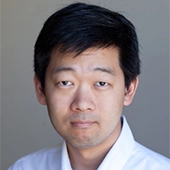Environmental and Energy Law Challenges
Trienens Institute Faculty Affiliate Robert. A Weinstock reflects on Earth Month as well as the legislation and policy needed to protect our planet
As a professor at Northwestern’s Pritzker School of Law, Alex Lee bridges two worlds — law and economics.
Armed with a JD and a PhD in economics, both from Yale University, Lee uses the tools of economics to understand law and the world better. And that understanding inevitably involves thinking about how to make the world a more sustainable place.
 “My interest in sustainability follows from my interest in economics: at its core, economics is a study of the allocation of limited resources, often under imperfect information, and how to promote efficient uses of these resources,” said Lee, who is a faculty affiliate of the Paula M. Trienens Institute for Sustainability and Energy. The Faculty Affiliates program brings together faculty from across the university in a network of interdisciplinary expertise to create sustainable solutions to the world’s greatest energy and environmental challenges.
“My interest in sustainability follows from my interest in economics: at its core, economics is a study of the allocation of limited resources, often under imperfect information, and how to promote efficient uses of these resources,” said Lee, who is a faculty affiliate of the Paula M. Trienens Institute for Sustainability and Energy. The Faculty Affiliates program brings together faculty from across the university in a network of interdisciplinary expertise to create sustainable solutions to the world’s greatest energy and environmental challenges.
Issues in sustainability and scalability are closely related to the types of questions economists like to think about, Lee says. “Economics also highlights the importance of finding an appropriate balance between market mechanisms and government regulation,” he said.
Lee learned firsthand about government regulation when he worked at the U.S. Securities and Exchange Commission — first as a fellow and senior counsel from 2007 to 2012, and then as a visiting academic scholar in 2022. “My experience of working at the SEC has inspired me to think carefully about the various ways in which securities regulation and administrative law can affect our daily life as well as how regulatory agencies could promote more evidence-based and empirically-informed rulemaking,” he said.
The issues of sustainability and government regulation came into focus recently when the SEC adopted new climate disclosure rules. The effort is a way to give investors more consistent and reliable information about the financial effects of climate-related risks on a company’s operations and how it manages those risks.
“We live in an era where federal and state regulatory agencies are playing increasingly significant roles in addressing environmental needs,” Lee said. “As more and more regulators take action in this space, it will be all the more critical for regulators and industries to work together, engage in constructive dialogues, and conduct or sponsor studies analyzing regulatory effects.”
Lee has had a hand in helping to create these dialogues as director of the law school’s Center on Law, Business, and Economics, which is committed to the study of the impact of laws and regulation on economic growth. As part of its mission, the Center regularly convenes regulators, policymakers, industry representatives, and academics for dialogue events that discuss issues related to regional electricity. Recent themes include the ongoing energy transition and harmonizing the gas and electricity industries. The Center has had 54 utility commissioners from 33 states participate in the 2023-24 year alone.
The Center also recently merged with the Institute for Regulatory Law and Economics (IRLE). That institute, headed by Lynne Kiesling (a Trienens Institute faculty affiliate), also studies utility regulation, with the goal of educating regulators to understand the economics behind a changing electric grid.
This summer, the Center, IRLE, and the Trienens Institute will co-sponsor a research symposium called “Integrating Science and Law & Economics to Inform Energy Policy in a Decarbonized Future.”
As a Trienens faculty affiliate, Lee says this partnership is especially meaningful, both for the symposium and for issues that will inevitably arise as the world moves toward more sustainable energy sources.
“The Institute’s rich network of affiliates can provide ample opportunities for cross-disciplinary discussions on timely issues related to sustainability,” he said.